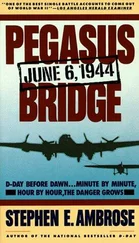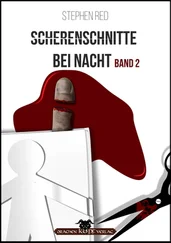Stephen Ambrose - Band of Brothers
Здесь есть возможность читать онлайн «Stephen Ambrose - Band of Brothers» весь текст электронной книги совершенно бесплатно (целиком полную версию без сокращений). В некоторых случаях можно слушать аудио, скачать через торрент в формате fb2 и присутствует краткое содержание. Жанр: История, на английском языке. Описание произведения, (предисловие) а так же отзывы посетителей доступны на портале библиотеки ЛибКат.
- Название:Band of Brothers
- Автор:
- Жанр:
- Год:неизвестен
- ISBN:нет данных
- Рейтинг книги:4 / 5. Голосов: 1
-
Избранное:Добавить в избранное
- Отзывы:
-
Ваша оценка:
- 80
- 1
- 2
- 3
- 4
- 5
Band of Brothers: краткое содержание, описание и аннотация
Предлагаем к чтению аннотацию, описание, краткое содержание или предисловие (зависит от того, что написал сам автор книги «Band of Brothers»). Если вы не нашли необходимую информацию о книге — напишите в комментариях, мы постараемся отыскать её.
Band of Brothers — читать онлайн бесплатно полную книгу (весь текст) целиком
Ниже представлен текст книги, разбитый по страницам. Система сохранения места последней прочитанной страницы, позволяет с удобством читать онлайн бесплатно книгу «Band of Brothers», без необходимости каждый раз заново искать на чём Вы остановились. Поставьте закладку, и сможете в любой момент перейти на страницу, на которой закончили чтение.
Интервал:
Закладка:
"Three times, sir," Winters replied.
"Thank you very much," Sink said. A few days later, without consulting Sobel, he promoted Winters to 1st lieutenant. For Sobel, Winters was a marked man from that day. The C.O. gave the platoon leader every dirty job that he could find, such as latrine inspection or serving as mess officer.
Paul Fussell wrote, "Chickenshit can be recognized instantly because it never has anything to do with winning the war."(4)
3. Paul Fussell, Wartime: Understanding and Behavior in the Second World War (New York: Oxford University Press, 1989), 80.
4. Ibid.
Winters disagreed. He believed that at least some of what Sobel was doing—if not the way he was doing it—was necessary. If Easy ran farther and faster than the other companies, if it stayed on the parade ground longer, if its bayonet drills were punctuated by "The Japs are going to get you!" and other exhortations, why, then, it would be a better company than the others.
What Winters objected to, beyond the pettiness and arbitrary methods, was Sobel's lack of judgment. The man had neither common sense nor military experience. He could not read a map. On field exercises, he would turn to his X.O. and ask, "Hester, where are we?" Hester would try to locate the position for him without embarrassing him, "but all the men knew what was going on."
Sobel made up his mind without reflection and without consultation, and his snap decisions were usually wrong. One night at Toccoa the company was out in the woods on an exercise. It was supposed to be on the defensive, stay in position and be quiet and let the enemy come into the killing zone. "No problem," as Winters recalled, "just an easy job. Just spread the men out, get them in position, 'everyone be quiet.' We're waiting, waiting, waiting. Suddenly a breeze starts to pick up into the woods, and the leaves start to rustle, and Sobel jumps up. 'Here they come! Here they come!' God Almighty! If we were in combat, the whole damn company would be wiped out. And I thought, 'I can't go into combat with this man! He has no damn sense at all!' "
Winters recognized that Sobel was "a disciplinarian and he was producing a hell of a company. Anytime you saw Easy, by God, the men were sharp. Anything we did, we were out in front." Private Rader said of Sobel, "He stripped away your civilian way of doing things and your dignity, but you became one of the best soldiers in the Army." In Winters' opinion the trouble was Sobel could not see "the unrest and the contempt that was breeding in the troops. You lead by fear or you lead by example. We were being led by fear."
I asked every member of Easy that I interviewed for this book if the extraordinary closeness, the outstanding unit cohesion, the remarkable staying power of the identification with Easy came about because of or in spite of Sobel. Those who did not reply "Both," said it was because of Sobel. Rod Strohl looked me in the eye and said flatly, "Herbert Sobel made E Company." Others said something similar. But they nearly all hated him.
That feeling helped bring the company together. "No doubt about it," Winters said. "It was a feeling everybody shared. Junior officers, noncoms, enlisted men, we all felt exactly the same way." But, he added, "It brought us together. We had to survive Sobel."
They hated him so much that even when he should have earned their respect, he failed. While at Toccoa everyone, enlisted and officer, had to pass a qualifying physical test. By then they were in such good shape that no one was really worried about it. Almost all of them could do thirty-five or forty push-ups, for example, and the requirement was only thirty. But there was great excitement, Tipper said, because "we knew Sobel could barely do twenty push-ups. He always stopped at that point when leading the company in calisthenics. If this test were fair, Sobel would fail and wash out.
"Sobel's test was public and fair. I was part of a not-so-casual audience perhaps fifty feet away. At twenty push-ups he was noticeably bushed, but kept going. At twenty-four or twenty-five his arms were trembling, and he was turning red, but slowly continuing. How he managed to complete the thirty push-ups I don't know, but he did. We were silent, shook our heads, but did not smile. Sobel did not lack determination. We comforted ourselves with the idea that he was still a joke, no matter what."
The paratroopers were volunteers. Any man or officer was free at any time to take a walk. Many did. Sobel did not. He could have walked away from the challenge of being an Airborne officer and walked into a staff job with a supply company, but his determination to make it was as great as that of any member of the company.
Pushing Easy harder than Dog and Fox was difficult, because 2nd Battalion commander Major Strayer was almost as fanatic as Sobel. On Thanksgiving Day, Sink let his regiment feast and relax, but Major Strayer decided it was time for a two-day field exercise for the 2nd Battalion. It included long marches, an attack against a defended position, a gas alarm in the middle of the night, and an introduction to K rations (tins containing a sort of stew, crackers, candy, and powdered fruit juice).
Strayer made that Thanksgiving even more memorable by laying on the Hawg Innards Problem. He stretched wires across a field, at about 18 inches off the ground. Machine-gunners fired over the top of the wire. Beneath it, Strayer spread the ground with the intestines of freshly slaughtered hogs—hearts, lungs, guts, livers, the works. The men crawled through the vile mess. Lipton recalled that "the army distinction between 'creep' and 'crawl' is that a baby creeps, and a snake crawls. We crawled." No one ever forgot the experience.
By the end of November, basic training had been completed. Every man in the company had mastered his own specialty, be it mortars, machine-guns, rifles, communications, field dressings, and the rest. Each man was capable of handling any job in the platoon, at least in a rudimentary fashion. Each private knew the duties of a corporal and sergeant and was prepared to take over if necessary. Each one who made it through Toccoa had been harassed almost to the point of rebellion. "We all thought," Christenson said, "after this, I can take anything they can throw at me."
A day or so before leaving Toccoa, Colonel Sink read an article in the Reader's Digest that said a Japanese Army battalion had set a world record for marching endurance by covering 100 miles down the Malayan Peninsula in seventy-two hours. "My men can do better than that," Sink declared. As Strayer's 2nd Battalion had trained the hardest, Sink picked it to prove his point. The 1st Battalion took the train to Fort Benning, the 3rd took the train to Atlanta, but the 2nd marched.
At 0700, December 1, Dog, Easy, Fox, and battalion HQ companies set out, each man wearing all his gear and carrying his weapon. That was bad enough for the riflemen, terrible for those like Malarkey in the mortar squad or Gordon, who carried a machine-gun. The route Strayer chose was 118 miles long, 100 miles of that on back-country, unpaved roads. The weather was miserable, with freezing rain, some snow, and thus slippery, muddy roads. As Webster recalled it, "The first day we sloshed and fell in the red mud and cursed and damned and counted the minutes before the next break." They marched through the day, through twilight, into the dark. The rain and snow stopped. A cold, biting wind came up.
By 2300 hours the battalion had covered 40 miles. Strayer picked the campsite, a bare, windswept hill devoid of trees or bushes or windbreaks of any kind. The temperature dipped into the low 20s. The men were issued bread smeared with butter and jam, as they couldn't get the field stoves started. When they woke at 0600, everything was covered with a thick layer of frost. Boots and socks were frozen solid. The officers and men had to take the shoestrings out of the boots to get them onto their swollen feet. Rifles, mortars, and machine-guns were frozen to the ground. The shelter halves crackled like peanut brittle.
Читать дальшеИнтервал:
Закладка:
Похожие книги на «Band of Brothers»
Представляем Вашему вниманию похожие книги на «Band of Brothers» списком для выбора. Мы отобрали схожую по названию и смыслу литературу в надежде предоставить читателям больше вариантов отыскать новые, интересные, ещё непрочитанные произведения.
Обсуждение, отзывы о книге «Band of Brothers» и просто собственные мнения читателей. Оставьте ваши комментарии, напишите, что Вы думаете о произведении, его смысле или главных героях. Укажите что конкретно понравилось, а что нет, и почему Вы так считаете.



![Stephen Ambrose - Citizen Soldiers [Condensed]](/books/346737/stephen-ambrose-citizen-soldiers-condensed-thumb.webp)
![Stephan Orth - Behind Putin's Curtain - Friendships and Misadventures Inside Russia [aka Couchsurfing in Russia]](/books/415210/stephan-orth-behind-putin-s-curtain-friendships-a-thumb.webp)





